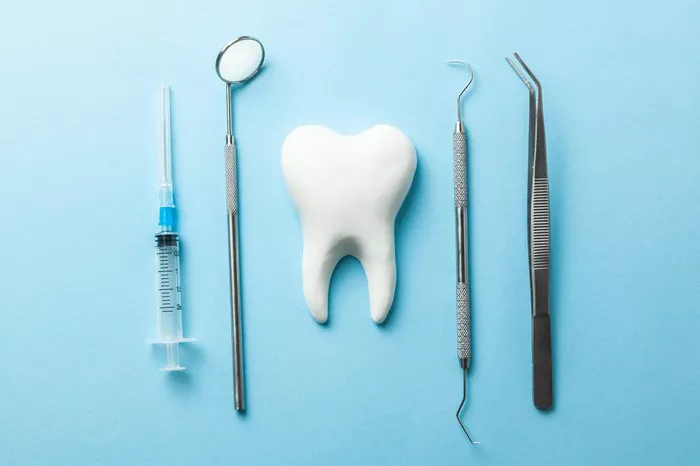Dental insurance can be complex and often confusing. One of the terms you might encounter when dealing with dental insurance is “DPO.” Understanding what a DPO is and how it affects your dental coverage is crucial for making informed decisions about your dental health care.
A DPO, or Dental Provider Organization, is a type of dental insurance plan that offers a network of dentists from which you can choose to receive dental care. These plans are designed to provide more affordable dental care by negotiating reduced rates with in-network providers. This structure aims to balance cost savings for patients and profitability for insurers while ensuring access to quality dental care.
To understand DPOs fully, let’s break down their key aspects, how they compare to other types of dental insurance plans, and what you should consider when choosing a dental insurance plan.
Introduction to Dental Insurance Plans
Dental insurance plans come in various forms, each with its own set of features, benefits, and limitations. Understanding these differences is essential for selecting the plan that best meets your needs. The most common types of dental insurance plans include:
Preferred Provider Organization (PPO) plans
Health Maintenance Organization (HMO) plans
Dental Provider Organization (DPO) plans
What is a Dental Provider Organization (DPO)?
A DPO is a managed-care dental plan that operates similarly to a PPO but focuses exclusively on dental care. It offers a network of participating dental providers who agree to offer services at reduced rates to plan members. This arrangement helps to control costs for both the insurance company and the insured individuals while ensuring that patients receive quality dental care.
Key Features of DPO Plans
Network of Providers
DPO plans have a network of dentists and dental specialists who have agreed to provide services to plan members at reduced rates. When you choose a DPO plan, you will be encouraged to visit these in-network providers to maximize your savings.
Lower Out-of-Pocket Costs
One of the primary advantages of DPO plans is the potential for lower out-of-pocket costs. Because the plan negotiates discounted rates with in-network providers, you generally pay less for dental services than you would with out-of-network providers.
Flexibility in Provider Choice
While DPO plans encourage the use of in-network providers, they often offer the flexibility to see out-of-network dentists if needed. However, visiting an out-of-network provider typically results in higher out-of-pocket costs, as the discounted rates do not apply.
Preventive Care Emphasis
DPO plans often place a strong emphasis on preventive care, such as regular check-ups, cleanings, and x-rays. By encouraging routine dental visits, these plans aim to catch and address dental issues early, which can prevent more severe and costly problems down the line.
How DPO Plans Work
Enrollment and Premiums
When you enroll in a DPO plan, you pay a monthly premium to maintain your coverage. Premiums can vary based on factors such as the level of coverage, the size of the network, and your location.
Choosing a Dentist
After enrolling, you will receive a list of in-network dentists and specialists. While you are free to choose any dentist from this list, selecting an in-network provider ensures you receive the negotiated rates, minimizing your out-of-pocket expenses.
Receiving Dental Care
When you visit an in-network dentist, you will present your insurance card, and the dentist’s office will handle the billing process with your insurance company. You will typically be responsible for a portion of the cost, such as a copayment or coinsurance, depending on the specific service and your plan’s details.
Out-of-Network Care
If you decide to visit an out-of-network dentist, you can still receive care, but your costs will likely be higher. In this case, you may need to pay the full fee upfront and submit a claim to your insurance company for partial reimbursement.
Comparing DPOs to Other Dental Insurance Plans
To better understand DPO plans, it’s helpful to compare them to other common types of dental insurance plans: PPOs and HMOs.
DPO vs. PPO
Both DPO and PPO plans offer a network of providers and the flexibility to see out-of-network dentists. However, there are some key differences:
DPO plans typically focus solely on dental care, while PPO plans may cover a broader range of health services.
DPO plans may offer lower premiums and out-of-pocket costs for dental care compared to PPO plans.
PPO plans generally have a larger network of providers, which can be beneficial if you need a wider range of options.
DPO vs. HMO
HMO plans, including Dental Health Maintenance Organizations (DHMOs), operate differently from DPOs:
HMO plans usually require you to select a primary care dentist and obtain referrals for specialist care.
DPO plans offer more flexibility in choosing dentists and do not typically require referrals for specialists.
HMO plans may have lower premiums, but the trade-off is often a more restricted network and less flexibility in provider choice.
See Also: What Does EPO Mean for Dental Insurance
Benefits of Choosing a DPO Plan
Cost Savings
One of the most significant benefits of a DPO plan is cost savings. By choosing in-network providers, you can take advantage of discounted rates, reducing your overall dental expenses.
Quality of Care
DPO plans often work with reputable dentists and specialists who meet specific quality standards. This ensures that you receive high-quality care while benefiting from the cost savings associated with the plan.
Preventive Focus
DPO plans emphasize preventive care, which can help you maintain good oral health and avoid more serious dental issues. Regular check-ups and cleanings are encouraged and often fully covered or available at a low cost.
Flexibility
While DPO plans encourage the use of in-network providers, they still offer the flexibility to see out-of-network dentists if necessary. This can be beneficial if you need specialized care or prefer a specific dentist who is not part of the network.
Considerations When Choosing a DPO Plan
Network Size
When evaluating a DPO plan, consider the size and scope of the provider network. Ensure that there are enough in-network dentists and specialists in your area to meet your needs.
Coverage Details
Review the plan’s coverage details, including what services are covered, any limitations or exclusions, and the costs associated with different types of care. Pay close attention to the coverage for preventive, basic, and major dental services.
Cost
Evaluate the total cost of the plan, including premiums, copayments, coinsurance, and deductibles. Consider how these costs compare to your expected dental care needs and budget.
Out-of-Network Coverage
Understand the plan’s policy on out-of-network care. If you think you may need to see an out-of-network dentist, consider how this will impact your costs and coverage.
Customer Service
Research the insurance company’s reputation for customer service. Look for reviews and ratings from current or former plan members to get a sense of their experiences with claims processing, provider network access, and overall satisfaction.
Common Questions About DPO Plans
How Do I Find an In-Network Dentist?
Most insurance companies provide an online directory of in-network dentists and specialists. You can search by location, specialty, and other criteria to find a provider that meets your needs.
What If My Dentist Leaves the Network?
If your dentist leaves the network, you can choose to continue seeing them as an out-of-network provider, but your costs will likely increase. Alternatively, you can switch to another in-network dentist to continue receiving the discounted rates.
Are Orthodontic Services Covered?
Coverage for orthodontic services varies by plan. Some DPO plans include coverage for orthodontic care, while others may offer it as an optional add-on. Review your plan’s details to understand the coverage and costs associated with orthodontic services.
How Do I Know What Services Are Covered?
Your plan’s summary of benefits and coverage (SBC) document outlines the specific services covered, any limitations or exclusions, and the associated costs. Review this document carefully to understand what is covered and what you will be responsible for paying.
Can I Switch Plans If I’m Not Satisfied?
Many insurance companies allow you to switch plans during an open enrollment period, usually once a year. If you are not satisfied with your current DPO plan, you can explore other options during this time and make a change if necessary.
Conclusion
Understanding what a DPO plan is and how it works is crucial for making informed decisions about your dental insurance. DPO plans offer a network of dentists and specialists who provide services at reduced rates, helping you save on dental care costs. These plans emphasize preventive care and offer flexibility in provider choice, making them an attractive option for many individuals and families.
When choosing a DPO plan, consider factors such as the size of the provider network, coverage details, costs, and customer service. By carefully evaluating these aspects, you can select a plan that meets your needs and helps you maintain good oral health.
Ultimately, a DPO plan can be a valuable tool for managing your dental care expenses and ensuring access to quality dental services. By understanding the features and benefits of DPO plans, you can make informed choices that support your overall health and well-being.






















